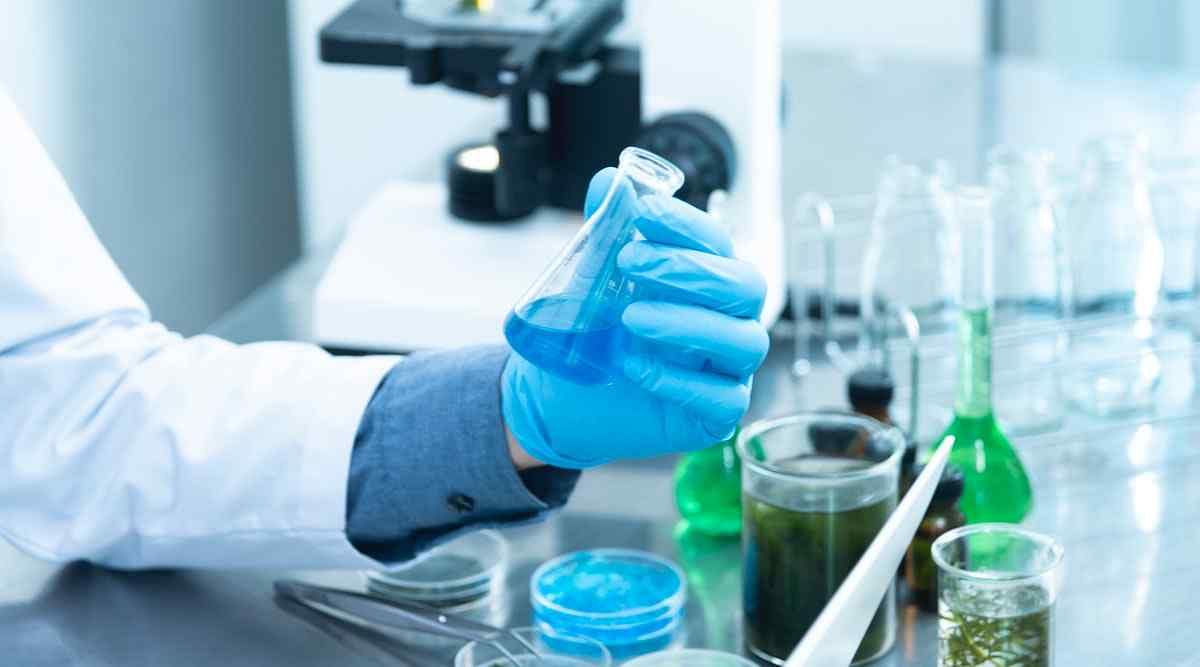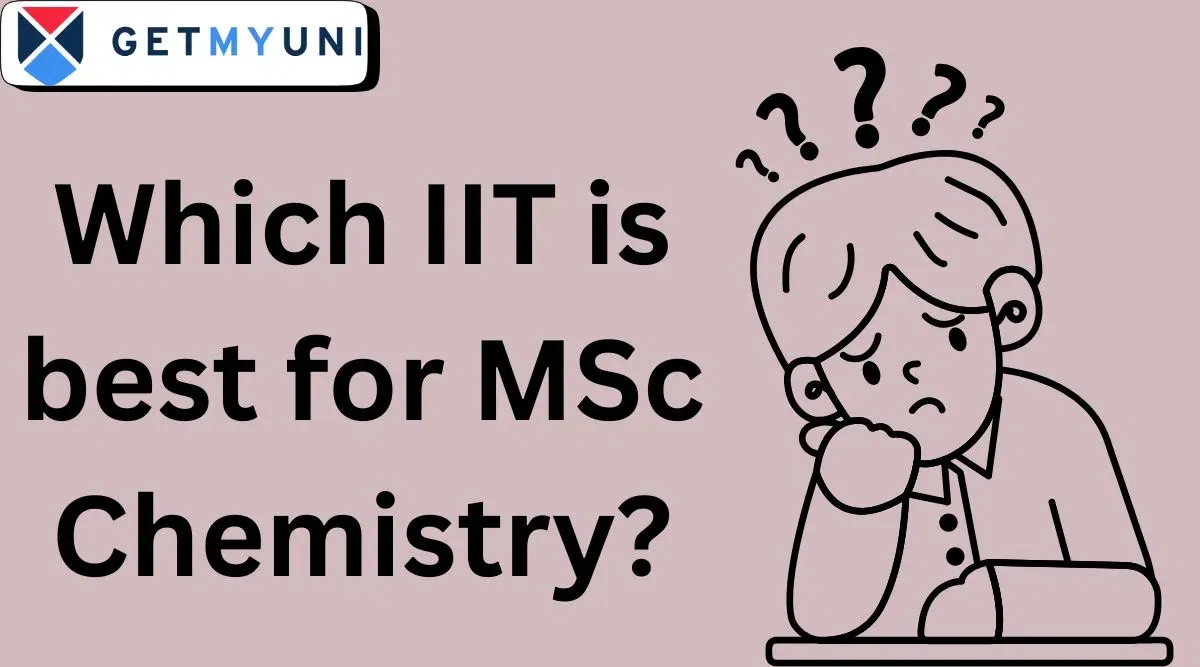Looking for list of courses after B.Sc Chemistry in India? Find the detailed information on courses, career options, and much more.
Table of Contents
There is a comprehensive range can opt for several higher education opportunities. Here we will look at the list of M.Sc Courses after B.Sc Chemistry. Candidates are advised to first pursue an M.Sc degree in Chemistry through IIT JAM Exam and then head-out to secure a job.
M.Sc Chemistry is the traditional master’s course that a student thinks of choosing after pursuing a bachelor’s degree in chemistry. However, there are more specialized M.Sc courses that are allowed in India for chemistry graduates.
List of M.Sc Courses after B.Sc Chemistry
- M.Sc Analytical Chemistry
- M.Sc Bio-Chemistry
- M.Sc Chemistry
- M.Sc Inorganic Chemistry
- M.Sc Organic Chemistry
- M.Sc Medicinal Chemistry
- M.Sc Molecular Chemistry
- M.Sc Applied Chemistry
- M.Sc Drug Chemistry
- M.Sc Environment & Green Chemistry
- M.Sc General Chemistry
- M.Sc Instrumental Analysis
- M.Sc Oil & Gas Chemistry
- M.Sc Organic Pharmaceutical Chemistry
- M.Sc Pharmaceutical Chemistry
- M.Sc Physical & Materials Chemistry
- M.Sc Physical Chemistry
- M.Sc Theoretical Chemistry
- Master’s in Computational Chemistry
M.Sc Analytical Chemistry
The postgraduate program focuses on the application used in science and engineering. Students are taught different ways and methods that are used in quantifying components. There are techniques studied with tools and various analytical skills as well. There are everyday operations and tasks taught to students as a part of the syllabus. The course is highly studied in-depth and practically assessed as well.
Read More: M.Sc Analytical Chemistry
M.Sc Biochemistry
M.Sc Biochemistry is the knowledge of the chemical process that involves living beings. It is about the chemical reactions and processes to analyze the metabolism characteristic of living organisms. Various job roles offered for M.Sc Biochemistry degree holders that candidates can opt for are Forensic Scientists, Biochemists, Biochemical Lab Technician, etc.
Read More: M.Sc Bio-Chemistry
M.Sc Chemistry
The M.Sc Chemistry degree is a two-year postgraduate course for students with undergraduate degrees in the relevant field. Students have the opportunity to specialize in certain areas of chemistry. Physical, organic, inorganic, and analytical chemistry are the main areas of study in this course. An M.Sc in Chemistry opens doors to several different industries, such as pharmaceuticals.
Read More: M.Sc Chemistry
M.Sc Inorganic Chemistry
A Master of Science in Inorganic Chemistry is a 2-year course that explores the properties and applications of inorganic compounds, including metals, minerals, and organometallic compounds. Biological Chemistry, Stereochemistry, Coordination and Nuclear Chemistry are some of the topics covered in the course.
Read More: M.Sc Inorganic Chemistry
M.Sc Organic Chemistry
M.Sc Organic Chemistry is a specialized course that has enormous applications in the modern world. Candidates who have an advantage in organic chemistry can opt M.Sc Organic Chemistry after the completion of the B.Sc chemistry course. M.Sc in Organic Chemistry has a wide range of applications in different industries like pharmaceuticals, petroleum, manufacturing industries like cosmetics, plastics, drugs paints, etc.
Read More: M.Sc Organic Chemistry
M.Sc Medicinal Chemistry
M.Sc Medicinal Chemistry is a postgraduate course that a student with a B.Sc Chemistry degree can opt for. The course focuses on the information and knowledge about modern synthetic chemistry. It involves the study of the mechanism and effectiveness of drug fight against the disease.
After the completion of M.Sc Medicinal Chemistry, the candidate can make a good career as Biochemist, Clinical Research Associate, Microbiologist, Clinical Data Analyst Production Chemist, etc.
M.Sc Molecular Chemistry
M.Sc Molecular Chemistry is a postgraduate degree program that involves the study of chemical synthesis at the molecular level. It is the study of molecules to understand the physical and biological properties of matter and address the scientific challenges. Various job roles available for M.Sc Molecular Chemistry graduates are synthetic chemist, radiochemist, molecular researcher, etc.
Other Courses after B.Sc
In addition to the science field core courses and jobs, there are some jobs in non-science fields as well. The fields include:
- Bachelor of Education (B.Ed)
- LLB
- Master of Computer Application (MCA)
- MBA in Pharmaceuticals Management
- MBA in Production Management
- MBA in Biotechnology
- MBA in Information and Technology
- M.Phil Chemistry
- M.Tech in Chemical Engineering
- Masters in Management (MIM)
- MBA in Biotechnology and Oil & Gas Management
- MBA in Biotechnology Management
- MBA in Communication
- MBA in Healthcare
- MBA in Hospitality
- MBA in Hospitality Management
- MBA in Laboratory Management
- MBA in Oil and Gas Management
- MBA in Shipping and Logistics Management
- Postgraduate Diploma in Analytical Chemistry
- Postgraduate Diploma in Biotechnology
- Postgraduate Diploma in Nanobiotechnology
- Certificate Course in Analytical Chemist
- Certificate Course in Lab Manager Analytical Chemistry
- Certificate Course in Research Associate Analytical Chemistry
- Certificate Course in Senior Process Analytical Scientist
- Certificate Course in Teacher Analytical Chemistry
Top Colleges for M.Sc Chemistry
The list of best colleges that students can consider for pursing an M.Sc in Chemistry are listed below.
- Ramjas College, Delhi University
- Stella Maris College, Chennai
- Madras Christian College, [MCC] Chennai
- Loyola College, Chennai
- Kurukshetra University, Kurukshetra
- Presidency College, Banglore
- VIT University, Vellore
- IIT Bombay
- Jamia Millia Islamia, New Delhi
- SGSITS, Indore
How to Apply for M.Sc Courses after B.Sc Chemistry?
Admission in the M.Sc course allowed in most of the institutes is received within the entrance test. Aspirants who aspire to take admission in M.Sc Chemistry or equivalent course can appear in the IIT JAM entrance examination. There are also some institutes in India that accept M.Sc admission on merit basis i.e. performance in the qualifying exam is considered for admission.
Candidates willing to take admission one of the M.Sc colleges in India must confirm the admission process, apply and complete the procedure for admission in the respective institute. Other recommended M.Sc entrance examinations are BHU PET, AUCET, LPU PG entrance test, AMU PG entrance test, etc.
Most of the candidates go for IIT JAM Exam in order to complete their Master’s Degree through various top colleges available in India like IITs, NITs, CFITs, etc.
Employment Areas for B.Sc Chemistry
Following are some of the employment areas for B.Sc Chemistry graduates:
- Chemical Laboratories
- Clinical Laboratories
- Health Care Industry
- Pharmaceutical Companies
- Forensic Labs
Career Options for B.Sc Chemistry
Below are a few job roles after B.Sc Chemistry
- Biomedical Chemist
- Quality Controller
- Production Chemist
- Chemical Engineering Associate
- Production OfficerResearch
- Development Manager
Biomedical Chemist
Biomedical Chemist is also known as Medical Scientist who studies and researches topics related to chemical equations. The key features of this job also include supervision and assistance. The chemists are relatively involved in testing and treating the new drugs that are researched. Some various methods and tools are used in the process of a human disease diagnosed by the chemist. They are responsible for the performance of testing and recording different drugs.
Quality Controller
The quality controller is also known as a specific laboratory chemist. They are specialized in the knowledge of equipment in the laboratory and different sources used for the branch. A chemist is responsible for remarking the study that he/she does on a sample. The chemist is also the one who researches and concludes methodologies for different laboratory techniques.
This is the fact that there has been an immense advancement in the subject of Chemistry over the past few years, so there are great opportunities for the candidates in the future. So it is encouraged to choose the path according to your area of expertise, interest, and abilities as every candidate differ in their talents, goals, values, and interests.























POST YOUR COMMENT